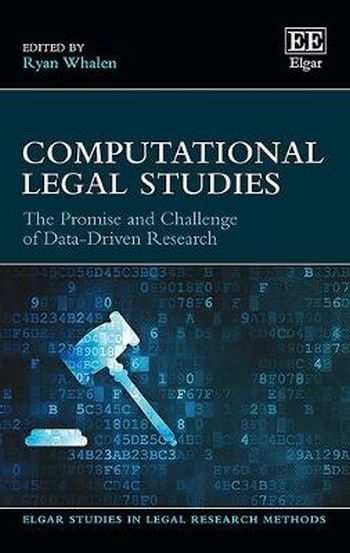We are now closed for the Christmas and New Year period, returning on Monday 5th January 2026. Orders placed during this time will be processed upon our return on 5th January.

Computational Legal Studies offers a visionary introduction to the computational turn in law and the resulting emergence of the computational legal studies field. It explores how computational data creation, collection, and analysis techniques are transforming the way in which we comprehend and study the law, and the implications that this has for the future of legal studies.
Featuring contributions from a diverse set of experts, this thought-provoking book considers the implications of computationally enabled research and the future trajectory of the field. It discusses how technological, scientific, and methodological developments are not only making the traditional practice of law more efficient but are also creating new perspectives on the law and shaping how we understand it. Chapters draw on a range of examples of computational legal research to demonstrate how a wide variety of research methods, including natural language processing, machine learning, agent-based modelling, and network analysis, are transforming the relationship between law and computation.
This book will prove to be a stimulating read for legal academics looking for a better understanding of this emerging field and for law students interested in new legal research techniques. It will also be a valuable resource for legal firms and computational social scientists interested in examining how law is adopting computational methods.